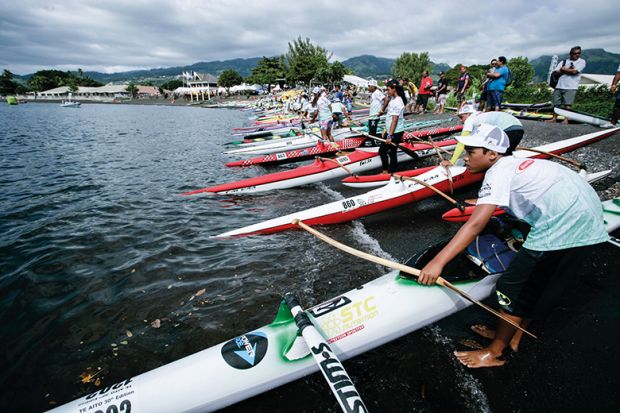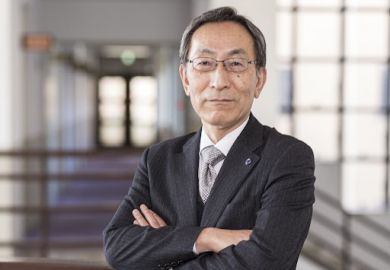French Polynesia is made up of more than 100 tropical islands and atolls scattered about the southern Pacific Ocean. The University of French Polynesia (UPF), which has about 3,500 students and 230 staff, is the only one to serve the country, which is an overseas territory of France.
“We are a university like any other university in France, despite the fact that we are really tiny,” Patrick Capolsini, the university’s president, told Times Higher Education. This summer his diminutive institution won just over €11 million (£9.4 million) in the second round of France’s Excellences programme, which funds universities to better serve their locality.
That has been a major challenge for UPF: most of its students finish secondary school with a professional baccalaureate, the least academic of France’s three leaving certificates. As a result, many struggle with French, the language of instruction, instead speaking one of about 30 Polynesian languages, half of which are spoken by a thousand people or fewer.
“Families with financial possibilities will support their children to go to France or Canada or the United States. The ones with families in the most financial difficulty have no other choice than coming to the University of French Polynesia,” said Dr Capolsini.
As well as language, miles of azure ocean also divide the country. Until 2021, UPF’s only campus location was on Tahiti, the largest and most populous island. Most students from other islands can only afford to fly in and out once a year, leaving them lonely and dislocated. “Family is something really important in Polynesian culture and Polynesian minds, so it’s really an effort for them to come here,” Dr Capolsini said.
Courses must also keep step with French national curricula, which can be alienating for students who have grown up a world away from metropolitan France. “There is not a lot of place for Polynesian culture in this system, and this is a real difficulty for us,” said Dr Capolsini. “We are a bit constrained by the national degrees.”
In a bid to stem dropout rates, last year UPF opened a satellite site on an island 300km away from Tahiti – and is planning to set up two more in far-flung archipelagos. Each computer-room “campus” will offer workstations for up to 15 students, allowing them to study a subset of UPF diplomas remotely.
As part of its eight-year Excellences project, UPF has promised to completely overhaul its bachelor’s programmes, putting more emphasis on interdisciplinarity, English-language teaching and Polynesia’s global context. “Being here, in the middle of an English-speaking area, is really important, and up until now it was probably not handled in our bachelor’s degrees,” Dr Capolsini said, referring to Polynesian links to New Zealand and Hawaii.
Since the end of French nuclear testing and a drawdown of military activities in 1996, the islands’ economies have become ever more dependent on tourism and pearl farming. New degree offerings will include maritime studies, aquaculture and ecology. “You need curricula that will combine biology, law, economics, management, understanding of the cultural environment and even English, to be able to trade with neighbouring countries,” said Sabine Plaud, a consultant for Siris Academic, who worked on the bid.
While Tahiti’s black-sand beaches, lagoons and waterfalls are a draw for the world’s wealthy, recruiting and retaining staff can be tricky. “The distance is a challenge. It’s not easy for people to move so far if they have a family,” said Isabelle Allegret, UPF's executive director, who as a French civil servant is legally required to leave French Polynesia after four years. “This of course generates a lack of continuity,” she added.
The University of Corsica, the only institution serving the multilingual island and French region in the western Mediterranean, also won funding from the latest Excellences round. Does a little isolation make it easier to focus on serving your local community? “Perhaps we can be compared to Corsica in some ways, but I’m not sure being an island is an advantage,” said Dr Capolsini.
后记
Print headline: France’s Pacific university changes course for home




